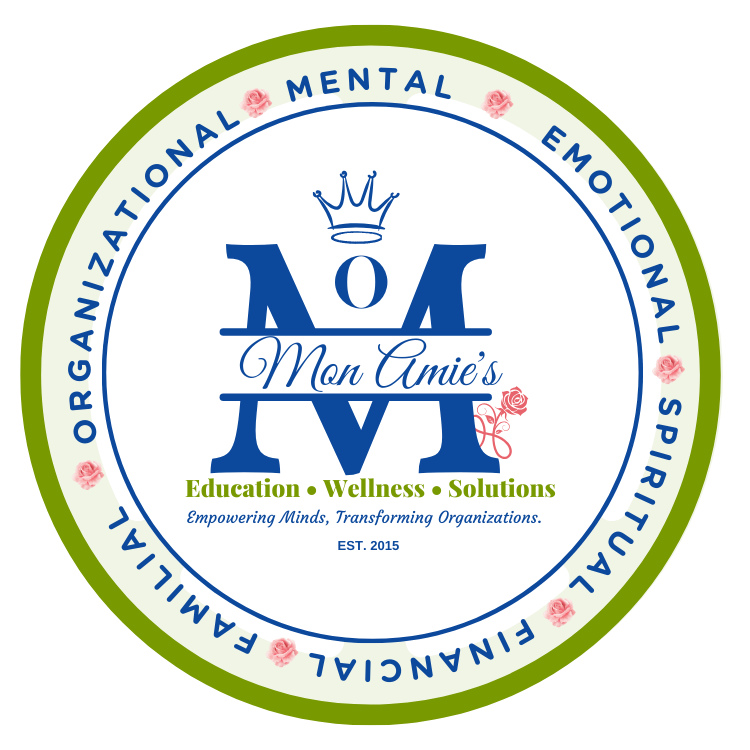Back to School, Back to Trauma? Not This Year.
As we head into a new school year, it’s time to acknowledge something we don’t always talk about: for some children, school isn’t just hard—it can be harmful.
While many educators step into the classroom with the best of intentions, certain learning environments unintentionally become sources of chronic stress for students who learn differently. For neurodivergent children and those with unaddressed learning challenges, the pressure to keep up, follow instructions, stay organized, and meet grade-level benchmarks can trigger anxiety, shame, and a deep sense of inadequacy. And when those struggles are met with punishment instead of support, it reinforces a message that something is wrong with them. Over time, that isn’t just discouraging—it becomes traumatic.
At Mon Amie’s Learning Lab, we don’t just tutor—we help families recover from the mental and emotional toll of academic struggles. We help students feel seen, supported, capable, and confident again. Many of the families we serve are not just trying to close a learning gap. They’re trying to undo damage caused by years of misunderstanding. That damage often started in the classroom.
So, before another school year begins, here’s what we want teachers, principals, and parents to remember:
For Educators: How to Help, Not Harm
Don’t assume a child is unmotivated.
Struggling does not equal slacking. Kids do well if they can (Greene, 2014). If they aren’t meeting expectations, there’s likely an unsolved problem or a lagging skill that needs support—not a punishment.Be cautious about your language.
Phrases like “you’re just not trying,” “you’re too old for this,” or “why can’t you be more like [another student]” stick with children for years. They internalize those messages. It changes how they see themselves.Avoid public shaming.
Calling out students in front of their peers, posting “missing assignment” lists, or moving clips and behavior charts may feel harmless—but for many students, it creates daily fear and humiliation. That’s not motivation. That’s emotional harm.Support without needing a diagnosis.
A child shouldn’t need formal paperwork to access compassion, scaffolding, or accommodations. If you see a student is struggling, lean in—not away.Ask yourself: “What skill is this student missing?”
Behavior is communication. Is it emotional regulation? Organization? Attention? Transitions? When you identify the missing skill, you can teach and support it—not punish its absence.Don’t compare them to other children.
Every student has their own timeline. Comparisons create pressure, shame, and disconnection.
For Parents: You’re Not Failing—You’re Figuring It Out
It’s not “just homework.”
If homework time feels like a battlefield, you’re not alone. Many parents raise their voices out of stress, fear, and exhaustion—not because they don’t care, but because the pressure they feel from school spills over at home.What your child needs most is your belief in them.
When you see your child struggling, speak life. Speak patience. Speak hope. Their confidence is shaped by how they see themselves reflected in your eyes.Don’t be afraid to ask for help.
If your relationship with your child is suffering because of the pressure around schoolwork, it’s okay to bring in a tutor. Especially one who understands neurodivergent learners and works from a place of compassion, not correction.Recognize when your child is showing signs of emotional exhaustion.
School-based trauma doesn’t always show up as tears. Sometimes it looks like avoidance, stomachaches, anger, or shutdowns. Your child isn’t being dramatic. Their nervous system is overwhelmed.
This school year can be different.
Let’s commit—together—to making classrooms safer, more understanding, and more affirming for all students. Let’s repair what school may have broken. Let’s not just teach content—let’s rebuild confidence.
If your child needs support this school year, reach out to Mon Amie’s Learning Lab. We’re not just tutors. We’re partners in healing.
About Mon Amie’s Business, Wellness & Learning Solutions
At Mon Amie’s, we restore hope, remove barriers, and create spaces where people can thrive. Rooted in a deep commitment to equity, we work to remove systemic obstacles for neurodiverse students, struggling learners, and organizations facing cultural barriers that compromise mental and emotional wellness. Guided by compassion, empathy, and lived experience, we create environments where people feel seen, valued, and equipped to succeed—leaving every person and place better than we found it.
We serve our community through three core areas:
Learning Solutions – K-12 tutoring in Mathematics, English Language Arts, Literacy, and Organizational Skills Training delivered by highly qualified educators.
Wellness Solutions – Tailored support for individuals and families navigating high stress, anxiety, depression, and neurodivergent disorders, grounded in a trauma-informed approach.
Business Solutions – Organizational consulting focused on workplace culture, equity, and mental and emotional wellness.
Our vision is to see communities where every person is valued, barriers are removed, and opportunity is limitless. Mon Amie’s is building that future—one tutoring session, one coaching call, one child, and one family at a time.
Mon Amie’s Business, Wellness & Learning Solutions does not provide medical advice, diagnosis, counseling, therapy services, or treatment. Any information published on this website or by this brand is not a substitute for medical advice. Please consult a healthcare professional before making decisions regarding your health.


